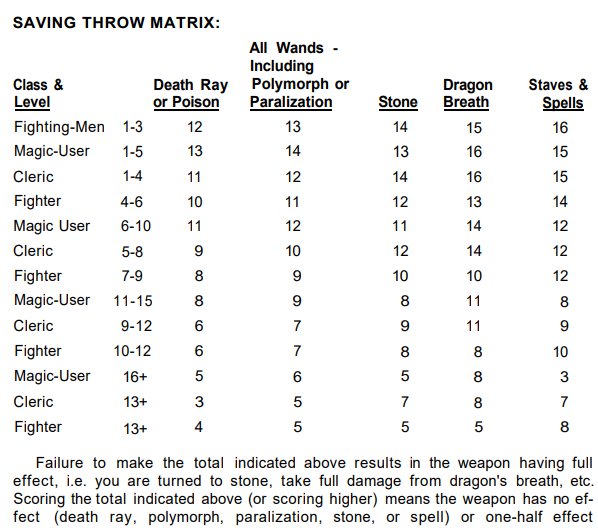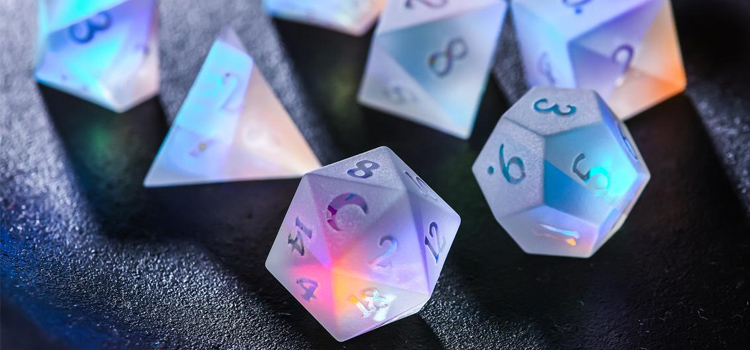In the perilous world of Dungeons & Dragons, you’ll often find yourself at the mercy of powerful spells, dangerous traps, and ferocious monsters.
Your ability to survive these threats lies in your character’s resilience and quick thinking – qualities that are represented by saving throws in D&D 5th Edition.
Mastering the art of calculating saving throws is essential for any adventurer seeking to overcome challenges and unlock their true potential in this ever-changing realm.
As you plunge deeper into this mystical universe, you’ll discover how your character’s core abilities influence their capacity to resist harmful effects and stave off defeat.
In this comprehensive guide, we’ll unravel the mechanics behind determining saving throws, shedding light on ability score modifiers, death saving throws, enemy abilities, environmental factors, class proficiencies, spells and even the role luck plays in shaping your destiny.
Embrace your inner hero as we equip you with the knowledge necessary to outwit fate itself and attain that much-coveted sense of freedom from harm’s way.
Key Takeaways
- Saving throws are crucial for resisting harmful effects on characters in D&D 5e.
- To calculate a saving throw, roll a d20 and add ability score modifier and proficiency bonus (if applicable).
- Death saving throws are simple: roll a d20 and 10 or above is a success, while 9 or below is a failure.
- Proficiency bonus starts at +2 and reaches +6 at level 20, and each class grants proficiency in two related saving throws.
What Is A Saving Throw in D&D 5e?

In D&D 5e, a saving throw is your character’s way of resisting harmful effects. It’s calculated by rolling a d20 plus the appropriate ability score modifier and proficiency bonus (if you’re proficient in that specific save).
This simple mechanic represents your character’s natural resilience and skill in avoiding or enduring various challenges they may face during their adventures.
Whether it’s evading a fireball, shaking off a mind-controlling spell, or recovering from poison, saving throws are crucial for overcoming obstacles and protecting your character from harm.
As you venture forth into the unknown realms of fantasy and danger, remember that luck also plays a significant role in successful saving throws. With every roll of the dice, you take fate into your own hands while battling powerful foes and treacherous environments.
Embrace these moments as opportunities to showcase your character’s growth and resourcefulness. After all, nothing compares to the exhilaration of triumphing against all odds when it matters most – be it through sheer determination or a timely intervention by magical aid like Bardic Inspiration or a Bless spell.
So keep pushing forward on this thrilling journey towards freedom, knowing that with each challenge faced head-on comes another chance to prove yourself as an indomitable hero!
Calculating Saving Throws
When you’re calculating a character’s saving throw, just imagine rolling a 20-sided die (d20), then adding their ability score modifier and proficiency bonus (if they’re proficient in that specific save) to the result.
This simple calculation determines whether your character can successfully resist or overcome various challenges thrown at them, such as dodging out of the way of a fireball or standing strong against an enchantment spell.
Remember that each class has its own set of saving throw proficiencies, so it’s important to know which ones your character is proficient in when making these calculations.
As you venture through your campaign setting, breaking free from the constraints of mundane life and embracing the excitement of adventure, keep in mind that luck also plays a role in successful saving throws.
Items like luckstones grant bonuses to every saving throw modifier, giving you an edge when facing difficult situations.
Additionally, spells like Bardic Inspiration and Bless can provide temporary boosts to give you an extra push towards victory.
Don’t forget that some abilities require reactions while others need to be used preemptively – stay vigilant and make use of these tools as needed to enhance your chances of success and secure your freedom from harm!
How Do Ability Scores Affect Saving Throws?

Ability scores affect saving throws like puppeteers pulling invisible strings. Each score influences a specific type of saving throw, showing your character’s natural aptitude or struggle in different situations.
For example, a high Strength score helps resist being knocked prone by wind, while low Intelligence makes it harder to disbelieve illusions.
To see how ability scores affect saving throws:
- Identify the relevant ability score.
- Find the ability modifier on your character sheet.
- Add proficiency bonus if applicable.
- Roll a d20 and add the modifier and proficiency bonus.
Remember that other factors can affect saving throws, like spells or items providing bonuses. Embrace these moments as opportunities for growth and self-expression in the game world. After all, finding freedom amidst challenges is what makes Dungeons & Dragons captivating!
Death Saving Throws
Teetering on the brink of death, a character’s fate hangs in the balance as they make crucial death saving throws. When your character is reduced to 0 hit points and rendered unconscious, you’ll need to roll these throws at the start of each of your turns to determine if they cling to life or succumb to their wounds.
Unlike other saving throws, death saving throws don’t rely on ability scores; instead, you simply roll a d20 without any modifiers. A result of 10 or higher counts as a success, while anything below that is considered a failure.
To track your progress, mark successes and failures on your character sheet until you reach either three successes or three failures.
Three successes mean that your character stabilizes and no longer needs to make death saves, though they remain unconscious until healed.
Conversely, three failures lead to permanent death for your character. Keep in mind that rolling a natural 1 counts as two failures, while rolling a natural 20 restores one hit point and brings your character back into consciousness.
| Roll Result | Outcome |
|---|---|
| 1 | Counts as two failures |
| 2-9 | One failure |
| 10-19 | One success |
| 20 | Regain consciousness with 1hp |
As you navigate this perilous situation where luck plays such an important role in determining the outcome for your hero, remember that every turn matters – whether it’s using abilities like Bardic Inspiration or spells like Bless before falling unconscious or relying on allies’ quick thinking and teamwork for timely healing and support during combat.
Embrace these moments not just as challenges but also opportunities for growth and storytelling – after all, few things are more exhilarating than defying fate itself by snatching victory from the jaws of defeat!
Do Enemies Make Saving Throws?

You bet enemies make saving throws too, and it’s crucial to factor in their abilities and resistances for a more engaging combat experience.
In fact, some spells and effects specifically require enemies to make these throws, putting the onus on the Dungeon Master (DM) to roll and calculate them according to the rules that apply to both player characters (PCs) and non-player characters (NPCs).
As you face off against formidable foes with unique strengths and vulnerabilities, remember that it’s not just your character’s skills and luck at play – your opponents are also subject to the whims of fate as they attempt to overcome challenges set by spellcasters or environmental hazards.
Ultimately, it’s up to the DM to determine if an enemy’s saving throw is successful based on factors like ability score modifiers, proficiencies, and difficulty class (DC) values established for each effect.
So keep this in mind as you strategize your next move during battle – every action counts when trying to outwit powerful adversaries that can turn the tide in an instant!
Embrace the uncertainty of combat as a thrilling opportunity for creativity and adaptation; after all, what better way is there to test your mettle than by overcoming seemingly insurmountable odds?
And when victory finally comes within reach, savor the sweet taste of triumph knowing that you’ve navigated through danger with skillful determination – a testament not only to your prowess but also your inherent desire for freedom in a world fraught with peril.





